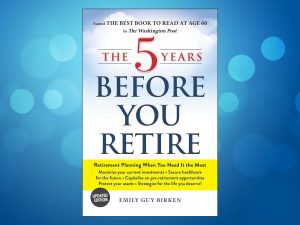By Sharon Hartung
Even loyalty points have a value when it comes to estate planning
As far back as I can remember, I loved collecting Canadian Tire money. When I was a young child my dad renovated houses, and I always wanted to go with him when he bought tools or supplies. My dad had one simple rule when it came to who got the Canadian Tire coupons: If it was a whole dollar coupon it was his, otherwise it was up for grabs. Later on I got a job as a student at our local store, and Canadian Tire money funded many of the Christmas and birthday presents I bought. Even when I moved away from home, Canadian Tire was my first choice for purchases.
The currency had such fame that Maclean’s wrote about its collector value and there is even a “Canadian Tire Coupon Collectors Club.” Then the world changed and the digital Triangle Rewards program took over, moving my beloved paper money into an online points program.
Digital lives
Over the years I’ve spent as a tech expert working in estate planning, I’ve become all too familiar with how the digital world has permeated our existence. We now have digital lives and, upon death, leave behind digital footprints.
Today, we all own a new set of assets called “digital assets.” These consist of our email addresses and records, loyalty points, online access, social media accounts, gaming points, travel rewards and even cryptoassets.
Just like physical assets, digital assets have value and therefore need to be accounted for in estate planning. This value might be financial as well as emotional. Think about it. Lots of us save up loyalty points. Just as with your physical assets, your digital assets need to be inventoried and your wishes expressed and captured in your will and estate documents. Our digital assets can have a little more complexity. First, due to their online nature, they can be “invisible.” and hard for your executor to find. Second, when we sign up to online accounts we agree to certain terms of service or conditions.
Terms of service
In June, Jackie Dunham of CTV News wrote an article called “What happens to your loyalty program rewards when you die?” In it, she reviewed the terms of a number of different loyalty programs—all of which had different provisions for what happens upon death. My Canadian Tire rewards, for instance, can’t be transferred when I die. There might also be an issue for incapacity planning, given the rewards expire after 18 months of inactivity.
On a positive note, according to Dunham’s research, the Aeroplan program allows beneficiaries to request a no-charge transfer of the dead member’s points into their own account upon providing the necessary paperwork. Air Miles allows a person to merge their own account with the deceased member’s or to take over of ownership of the deceased’s account (if they don’t have one of their own) with a letter from the executor or administrator of the estate along with proof of death documents.
According to Dunham, the recently revamped PC Optimum program is one program in which points are forfeited when a member dies. But points can be transferred to another member “at the company’s discretion” while a person is still living.
And on it goes. I can’t believe there hasn’t been a protest, or a Twitter outrage. Clearly a lot of us haven’t read the fine print.
Perhaps it’s also because fewer than 50 per cent of Canadians have a will or estate plan. My advice: It’s time to read up and speak out! And, if it’s important to you, support companies that are open to transferring your rewards to your beneficiaries after you’ve passed.
If this list sounds familiar, it should—this is exactly the same set of steps recommended for your physical assets (e.g., investment accounts, bank accounts) in estate planning. In the digital age, the job of the executor got just a little harder because they won’t always have a paper trail to follow.
I still have a small stash of Canadian Tire paper money. For now, I’ll carry on hiding it in my jewelery box and redirect my energy to encouraging Canadians to put their future plans in order.
Sharon Hartung is the author of Your Digital Undertaker: Exploring Death in the Digital Age in Canada.













